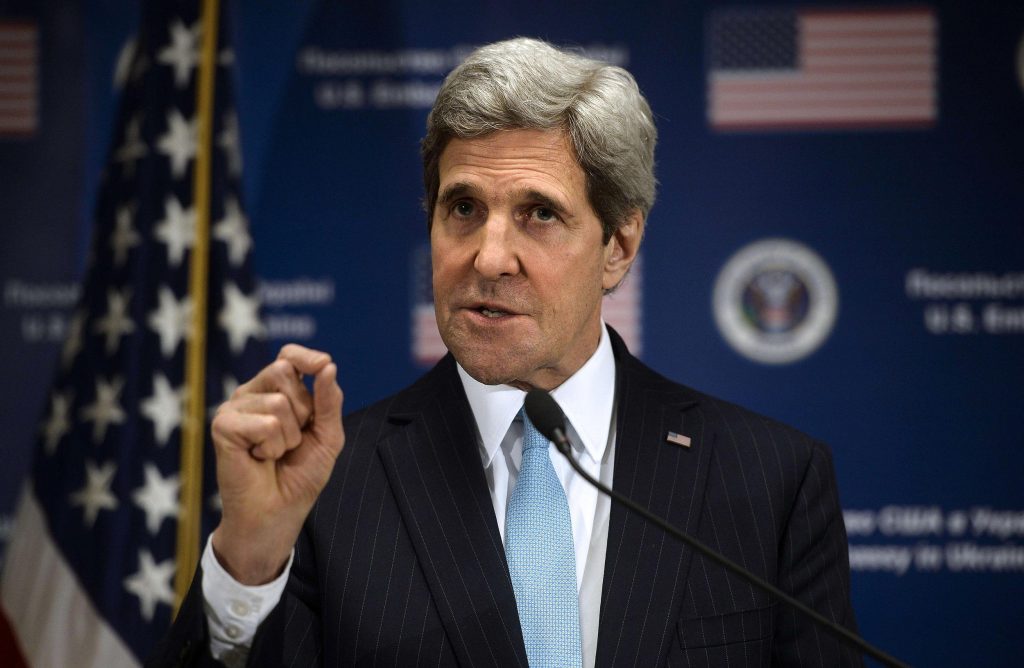There is a well-established consensus among respected military leaders and the core of the national security appartus that the potential threat from climate change is no less than massively destructive and an enormous risk to national security.
The big picture shows us:
- Climate science projects a grim long-term scenario if warming continues at present rates. Coastal cities flooded by higher seas, global food supply disruption, drought and wildfires. “Mass destruction” is an accurate description.
- Military leaders in the U.S. have recognized the growing threat of climate change for years, with risks ranging from economic instability to civil unrest.
- Management of climate risks involves both preparing for unavoidable near-term impacts and mitigating catastrophic long-term impacts.
- Military leaders are documenting those risks, including the organizations and institutions listed below.
The U.S. Department of Defense, the largest responder to natural and humanitarian crises around the world, has been steadily documenting the various ways climate change will exacerbate crises and conflicts:
- Weather disasters: Disasters both endanger lives and strain international relationships, sometimes necessitating military involvement. In response to recent flooding in Britain, former Royal Navy aircraft commander Neil Morisetti stated, “You can see the military being more involved in extreme weather relief – and you’ve got the equivalent going on in the UK at the moment … military aid in Somerset levels and the Thames Valley. That sort of thought process is the sort of the thinking that is definitely going on in London and Washington”. Impact Forecasting’s annual report stated that in 2013 alone, natural disasters cost the world $192 billion, with the highest ever total reaching $265 billion in 2011.
- Food and water insecurity: Battles over fresh water or medical attention can diminish civil order in a matter of days. Weak governments can fold under such pressure, opening vulnerabilities for extremism to fester and take control, and for crime to explode. The World Food Program established links between food insecurity and violent conflict. In Syria, for example, continuous drought caused massive crop failures and livestock die-offs that raised immediate economic and security concerns. A 2011 NOAA study linked this drought to climate change.
- Mass migration: As the impacts of climate change mount, there is potential for instability as refugees migrate on mass scales, sometimes entering unfriendly neighboring territory and igniting geopolitical conflicts. For example, Pacific island nations are already being forced to find land in places such as Australia and New Zealand, broaching unprecedented immigration concerns. Phil Glendenning, President of the Refugee Council of Australia, explains, “These are people who are not suffering from persecution because of their beliefs, race or because they belong to a particular group. So they don’t meet the Refugee Convention criteria but, nevertheless, there will be a need for people to be resettled because they have been displaced by climate change…this is a new cohort of people who are emerging, the rest of the world needs to pay attention.” The IPCC’s language in their most recent report on the warming has only gotten more severe, “… important tipping points for health impacts may be exceeded in many areas of the world during this century, including coping mechanisms for daily temperature/humidity making potentially large areas seasonally uninhabitable for normal human activities, including growing food or working outdoors (high confidence).
John Kerry is not alone in his assessment in the United States either, nor is he “delusional” as Newt Gingrich suggests. Kerry’s recognition of the risk is supported by military and intelligence leaders from every branch of the military and from voices throughout the political spectrum.
- Samuel J. Locklear III, Commander of the U.S. Navy Pacific Command: Significant upheaval related to the warming planet “is probably the most likely thing that is going to happen … that will cripple the security environment, probably more likely than the other scenarios we all often talk about.”
- Former Army Chief of Staff General Gordon Sullivan: “Climate change is a national security issue. We found that climate instability will lead to instability in geopolitics and impact American Military operations around the world.” The list of military leaders echoing these statements cannot be ignored (more can be found here).
- Tom Ridge, Former Assistant to the President for Homeland Security and Secretary of Homeland Security under President George W. Bush: “The U.S. national security community, including leaders from the military, homeland security, and intelligence, understand that climate change is a national security threat … They’re not talking about whether or not it is occurring – it is … They’re talking about addressing the problem and protecting the American people. It’s time Washington does the same.” A bipartisan letter including signatures from some former GOP leadership supporting this sentiment can be found here.
Mass destruction can and will occur if climate change is not directly challenged with a global, coordinated effort. Disagreement over solutions and policy is a fair, necessary debate. It is quite different to ignore and mock the threat-designation by the entire defense and intelligence community on the global impacts of a changing climate system. There is too much at stake, and luckily those at the vanguard are choosing to remain focused.
Further Resources
Center for Naval Analysis Report: “National Security and the Threat of Climate Change”
UCSD: “Climate Change – Multiplying Threats to National Security”
Office of the Under Secretary of Defense, 2011: “Trends and Implications of Climate Change for National and International Security”
Department of Defense FY 2012: “Climate Change Adaptation Roadmap”
Active Groups
The Center for Climate and Security
Partnership for A Secure America
Pew Project for National Security, Energy and Environment


